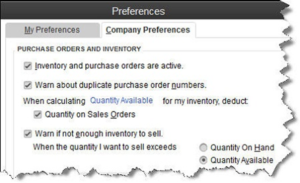Getting More from Your Banker

Getting More from Your Banker
Negotiating Techniques that Keep Funds Flowing
Steve Singer, CPA by Steven Singer financing, CPA
We frequently receive phone calls from clients that are unhappy with their banking relationships. We also hear from your bankers who want to keep their clients’ business but are not able to obtain the information necessary to approve additional funds. These situations may cause a company substantial financial hardship. Fortunately, there are some simple rules to follow that will help you get more from your banker.
Know Where You Stand
To get more from your banker, always negotiate when you are in a position of power. This usually occurs when your business had a good year.
If your business is having a poor year, turn it around so that you have the advantage. Inform the banker what happened and be prepared to present your plan to turn it around and how you are succeeding with that plan.
Meet with your key management and CPA before meeting with the banker to make sure that everyone is conveying the same message.
Know What You are what is negotiating bank
To get more from your banker, remember that bank negotiations loans are negotiable. Certain key ratios, debt to equity, total equity and borrowable assets (e.g. deferred income taxes) can be tailored to fit your needs.
When negotiating, do not forget the little items they can really add up. Audit, rate card, loan processing and origination, bank statement analysis charges, credit card processing, lockbox fees can be substantially reduced.
Negotiate the level of service (e.g. audit, review, compilation) that your bank is requiring from your outside accountants. Usually, audits are done for loans over $10 million. You may also be able to have a compilation with footnote disclosure if the total loans outstanding are less than $1 million.
Sometimes it helps to get competitive quotes from competing banks. This will give you an idea of what the banking environment is like (it continually changes) and what terms are available. You can use these quotes when you negotiate.
Be prepared to subordinate some of your shareholder loans to the bank. If you subordinate (e.g. bank will be paid before you if the company liquidates) your loans, the bank will treat it as additional equity in the business.
Know Your Bank and Your Banker
Getting more from your banker includes meeting with them at least twice a year.
If your banker knows your business, they will better be able to structure your loan.
Bankers have loan committees to whom they report. They want to understand at the onset of the approval process of what anticipated loans you are desiring so they are not required to go back to the committee.
Sometimes the way that you conduct your business changes. Long cycles between ordering goods and payment by the customer, or shipping goods to overseas customers may imply that you need to talk to a trade financing specialist at the bank.
Always deal with a vice president at the bank. Usually your loan size must be over $1 million.
Be careful of selling to government agencies. If the invoicing paperwork is not correct, it may lead to long delays in getting paid. Additionally, many banks may not finance receivables from government agencies.
When negotiating with new large customers, run it by your banker.
The payment terms that you have with your customer may negatively impact your borrowing base.
The banker could develop a loan structure (e.g. a trade cycle deal) that fits in with what you are negotiating.
Have the Necessary Information Available When You Meet
To get more from your banker, have a cash flow projection ready that indicates your anticipated rate of growth for the coming year and the amounts that you anticipate borrowing.
By having a cash flow plan, you can monitor your business on an ongoing basis and make changes when events are not going according to plan.
They also highlight when a business is growing too quickly. Although sales are necessary, too much growth will put your Company in a cash strapped position and also place too much risk for the bank.
Inform your banker of tax strategies that may dilute the capital of the Company and put it into the individual shareholders pocket.
Paying year-end bonuses will reduce the corporate tax rate. However, if you intend to borrow from the bank, you may need to lend some of the money back before your year-end financial statements are presented.
If you are planning to buy-out one of your shareholders, you can discuss it with your banker to see how long it will take to finance the buy-out.
If you are planning a major acquisition (e.g purchase of a building, large equipment or another company) discuss it with your banker. He may be able to provide the necessary financing.
How Can We Help You?
Introduce bankers to you who have worked with us closely.
Help you prepare your strategy when we meet with your banker.
Prepare dashboards and management reports that will assist you in running your business on a daily or weekly basis.
Assist you in preparing cash flow forecasts for the coming year that you can use as a gauge on how well your business is operating.
Design business processes that may result in substantial cash flow increases.
Follow GROCO on Facebook
Reducing Risk With a Diversified Portfolio
Reducing Risk With a Diversified Portfolio Have you been worried about the stock market’s recent volatility? You’re not alone. The stock market in March was a roller-coaster ride that served as a reminder to investors that the market’s ups and downs can be a little dizzying. But a volatile market should not leave you feeling…
Are You Defining Items in QuickBooks Correctly?
[vc_row][vc_column][vc_column_text] Create item records in QuickBooks carefully, and QuickBooks will return the favor by running useful, accurate reports. Figure 1: Clearly-defined items result in precise reports. Obviously, you’re using QuickBooks because you buy and/or sell products and/or services. You want to know at least weekly — if not daily — what’s selling and what’s…
Saving Money for College: Education Credits
Saving Money for College: Education Credits Education credits are tax credits available for qualified education expenses paid by the taxpayer in the furthering of their education. Qualified education expenses are defined as an expense paid during the tax year for tuition and fees required by an eligible educational institution for student enrollment and attendance. Room…
Thinking About Giving up Your U.S. Citizenship? Think Twice
Thinking About Giving up Your U.S. Citizenship? Think Twice While not a lot of people ever entertain the thought of giving up their U.S. citizenship, there are more people every year that are making that choice. Among them are several wealthier people whose main reason for renouncing is to escape the country’s overloaded tax system;…




